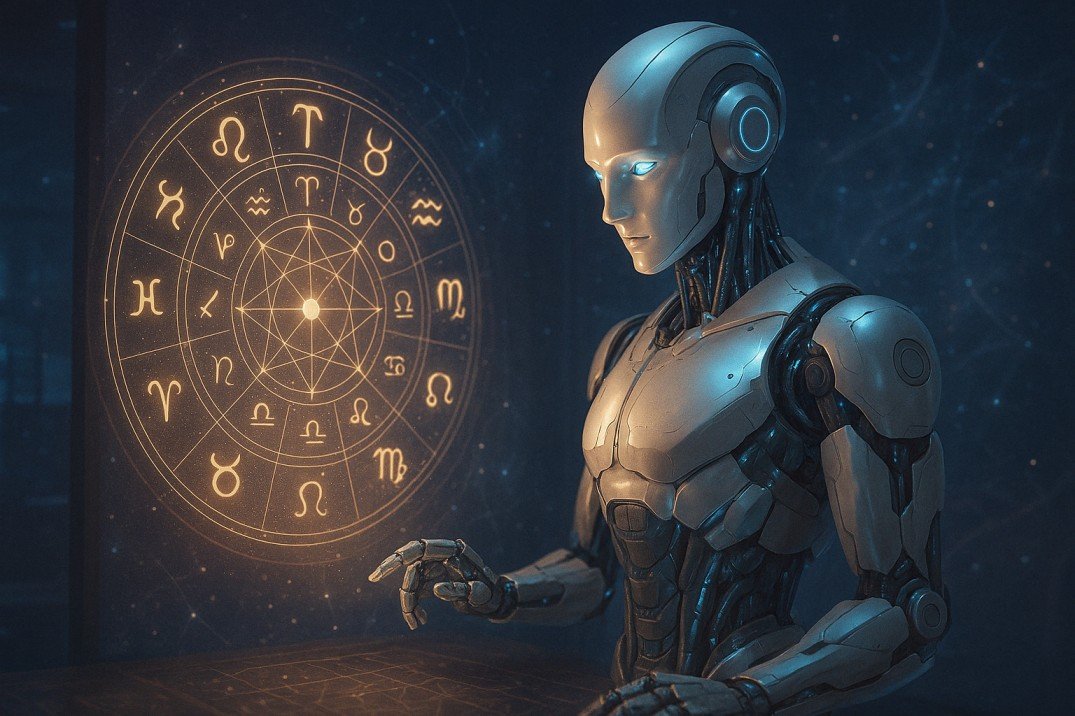


In the age of technology, artificial intelligence (AI) is leaving no field untouched. From personalized shopping to advanced medical diagnostics, AI is becoming an invisible force guiding our decisions. One such fascinating area of transformation is astrology. With the growing popularity of mobile astrology apps, people are now turning to machines to interpret the stars. But what exactly goes on behind the scenes? How do AI-powered astrology apps work? In this article, we will explore the inner workings of these applications, their advantages, limitations, and how they’re reshaping the future of astrological services.
AI-powered astrology apps are digital platforms that combine traditional astrological knowledge with artificial intelligence. These apps collect user input, such as birth date, time, and location, and use algorithms to generate horoscopes, natal charts, compatibility analyses, and daily predictions. Unlike manual astrology, which depends heavily on human interpretation, these apps offer instant, data-driven insights at scale.
Popular apps like Co-Star, The Pattern, and TimePassages use a mix of astronomical databases, machine learning, and natural language processing to deliver personalized guidance. Their success raises an important question: Can a machine read the stars as well as a human astrologer?
The first step involves sourcing astronomical data. AI astrology apps tap into real-time planetary positions through databases like NASA’s JPL Ephemeris or Swiss Ephemeris. These provide precise celestial coordinates, which are foundational to any accurate astrological chart.
Once user data is input, the app calculates the positions of the Sun, Moon, planets, and other celestial bodies relative to the birth time and location. This process, known as chart casting, is fully automated using mathematical formulas and algorithms.
Here’s where AI truly shines. Over time, machine learning algorithms analyze large datasets of horoscopes, user feedback, and behavioral data. By recognizing patterns between planetary combinations and life outcomes, the AI can refine its predictions and advice.
After computing the chart, the app must convert complex astrological insights into understandable language. NLP models, similar to those used in AI chatbots, help these apps generate readable, human-like interpretations of the data.
Some platforms allow users to rate predictions or log how accurate they felt the guidance was. This feedback loop helps the AI system learn and adapt, improving the quality of future readings.
What used to take astrologers hours can now be done in seconds. This makes astrology more accessible and scalable.
Unlike newspaper horoscopes, which are generalized, AI apps can deliver deeply personal insights based on specific astrological data points.
Users no longer need to book an appointment with an astrologer. These apps are available any time, anywhere.
AI continues to evolve by analyzing user data. This ensures constant improvement in prediction accuracy and user satisfaction.
Astrology is not just data—it’s also interpretation and spiritual intuition. AI cannot yet replicate the emotional intelligence of a human astrologer.
AI lacks the nuance to understand personal stories, cultural contexts, and spiritual depth. It can misinterpret situations without human input.
Questions about data privacy, over-reliance on algorithms, and emotional manipulation still surround these apps. Transparency and ethical development are essential.
While NLP is improving, some AI-generated horoscopes can still feel impersonal or too generalized.
AI-powered astrology apps often require highly sensitive data, including your exact birth time and location. Therefore, it’s crucial to examine the app’s privacy policies. Some apps anonymize and encrypt user data, while others may use it for marketing purposes. Always choose platforms that prioritize transparency and user privacy.
While AI can efficiently process data and generate reports, the human astrologer brings something irreplaceable to the table—intuition, emotional understanding, and spiritual connection. Many experts argue that AI should be seen as a tool, not a replacement.
The next generation of astrology apps may include:
With advances in AI, we may also see apps that can respond to emotional cues and tailor predictions based on user sentiment.
AI and astrology may seem like unlikely partners, but their union is redefining how we connect with the cosmos. Rather than eliminating the astrologer, AI empowers users with instant insights while allowing professionals to focus on deeper spiritual interpretation.
In essence, AI is not here to replace astrologers but to collaborate with them—bridging the gap between ancient cosmic wisdom and modern digital intelligence.